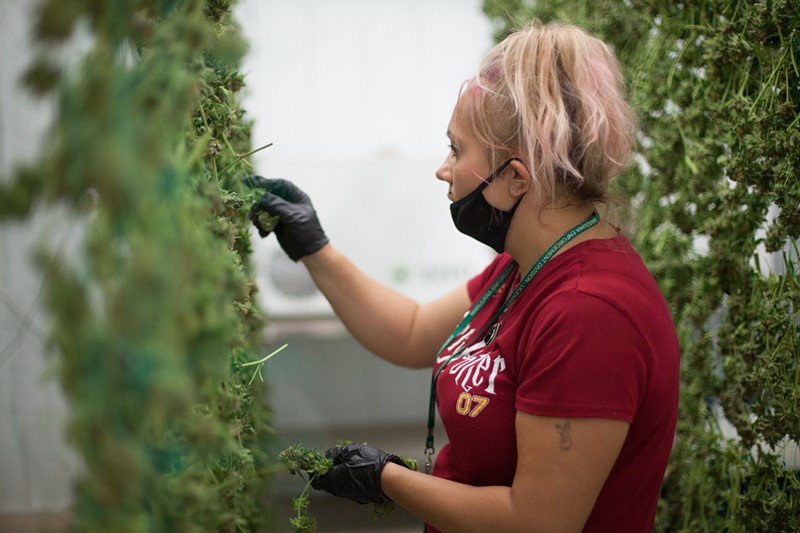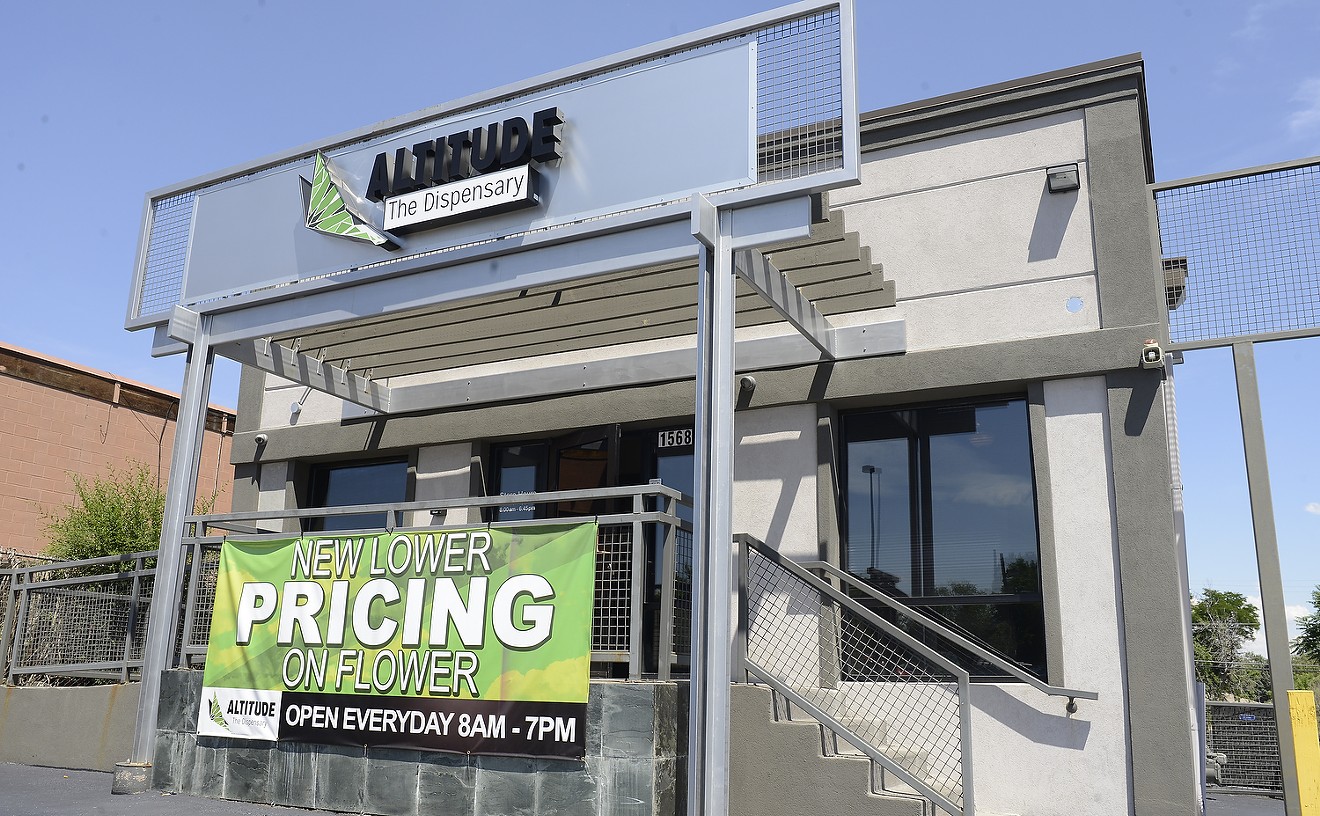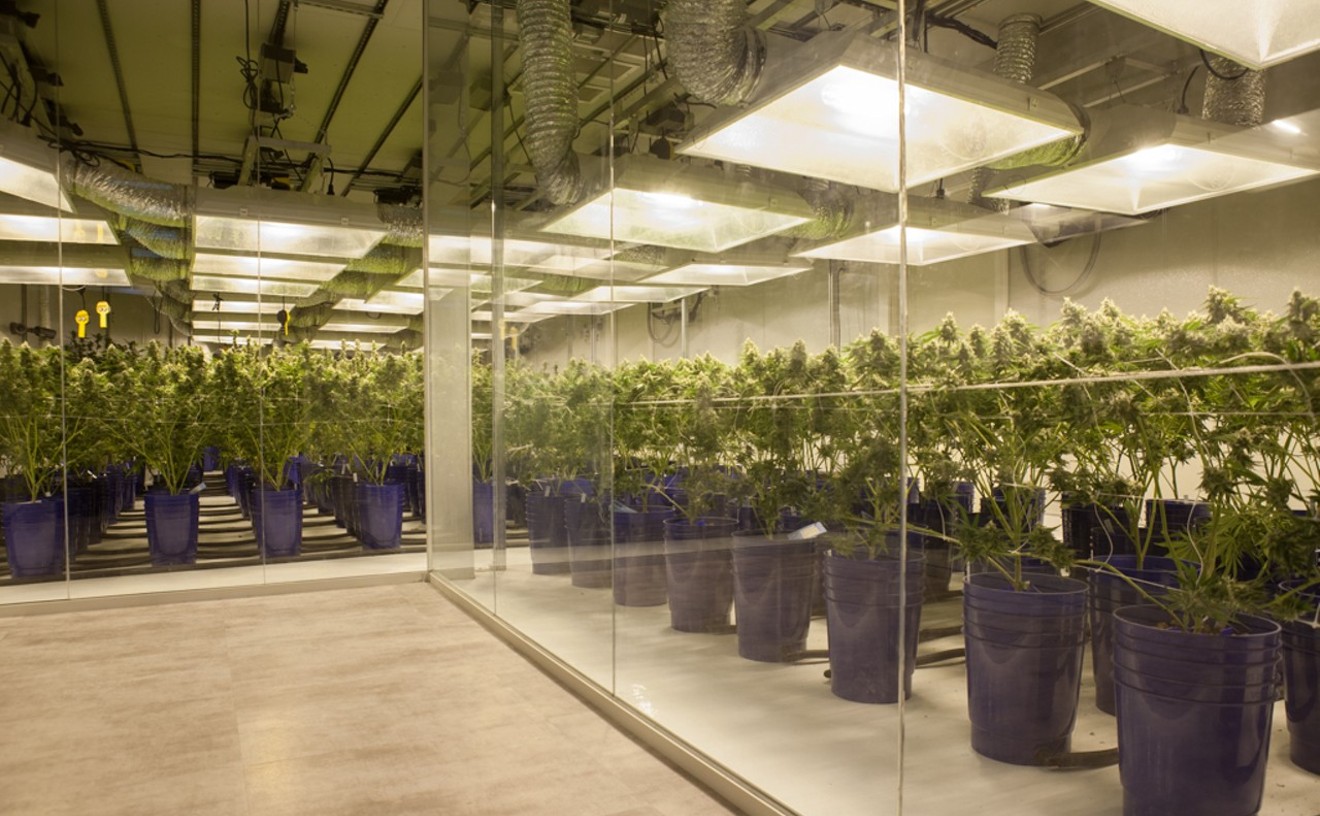Colorado's marijuana workforce has dropped 28 percent over the past year, according to a new jobs report from marijuana industry recruitment firm Vangst.
Dispensary sales have been struggling across the country, with commercial pot seeing a decrease in jobs nationwide for the first time since this state's recreational marijuana market went online in early 2014, the report shows. And Colorado has been hit particularly hard as more states join the pot party. According to Vangst, it's no longer one of the top two states for marijuana employment. In fact, it's not even in the top five.
From February 2022 to February of this year, Colorado marijuana business owners cut nearly 10,500 jobs, Vangst says, down to 27,856 workers. Losing nearly one-third of its workforce has dropped Colorado from second to sixth in marijuana industry employment by state; it now trails California (85,593), Michigan (35,405), Illinois (29,925), Florida (29,011) and Massachusetts (28,370). Other than California, every state in the top five saw employment growth from 2022 to 2023.
Because the plant is still federally prohibited, marijuana industry jobs aren't listed by the United States Department of Labor's statistics bureau, but most states with commercial marijuana frameworks regularly list that data or release it to the public. Vangst compiles information such as state marijuana employment and sales data, economic forecasts, medical marijuana patient counts, harvest reports and private investment data to calculate the number of jobs supported by marijuana in each state.
For marijuana business owners in Colorado, where wholesale pot prices have dropped over 61 percent since 2021, the Vangst report confirms their suspicions.
"I'm not surprised. The industry has gone through a twenty-month downturn with no end in sight. Sales are down over 20 percent on the recreational side and over 45 percent on the medical side this year," says Truman Bradley, executive director of Denver-based Marijuana Industry Group.
After dropping 21 percent from 2021 to 2022, dispensary sales this year are already off to a slower start. Colorado dispensaries reported slightly under $129.4 million in sales for the first month of 2023, according to the Colorado Department of Revenue, nearly 15 percent less than the $151.1 million sold in January of last year, and more than 30 percent less than sales in January 2021. Bradley and state economic forecasts suggest that marijuana purchasing in Colorado likely peaked around the one-year anniversary of the COVID-19 pandemic, when dispensaries recorded record sales numbers.
And it's not just dispensaries and growers that are hurting. Businesses that provide accounting, software support and other ancillary business services to the marijuana industry are also cutting staff amid financial woes, and local and state tax revenue from commercial marijuana has dropped significantly since 2021.
"The economic impact of the Colorado cannabis industry is real, and unfortunately, we're seeing that a contraction also has ripple effects," Bradley adds.
Although things have certainly gotten worse, state economic forecasts do see better days ahead — albeit far ahead. Through the next fiscal year, the Governor’s Office of State Planning and Budgeting predicts a 19.5 percent drop in total marijuana tax revenue, followed by anticipated growth of about 16 percent in 2024.
It's too harsh to call Colorado's marijuana market decline inevitable, Bradley argues, because of the country's public health and economic situations since 2020.
"COVID changed a lot of things in cannabis and other industries. After a big shock like that, it's hard to know what the world would've been like without that shock. We went through the best year we've ever had, immediately followed by a downturn. It's not just that other states have legalized. We're also dealing with high inflation that we haven't seen since cannabis has been legal," he says.
"It's hard to know exactly which levers to pull" to help spur growth in Colorado's marijuana space, Bradley admits, but he has "long-term concerns" about the state's 15 percent excise tax on wholesale marijuana.
Colorado is one of three states in the country with excise taxes on wholesale marijuana transfers. The provision was part of the voter-approved initiative legalizing adult-use marijuana in Colorado in November 2012, and was implemented when Colorado and Washington were the only two states to have approved recreational pot at the time. Now, MIG worries it could push prospective Colorado business owners elsewhere.
"When Colorado voted for the various tax plans in place now, in some cases we were the only legal marketplace to buy cannabis for almost 1,000 miles," Bradley notes. "That's not the case anymore, so decade number two needs to look different than decade number one if the Colorado cannabis industry is going to stick around."
[
{
"name": "Air - MediumRectangle - Inline Content - Mobile Display Size",
"component": "12017618",
"insertPoint": "2",
"requiredCountToDisplay": "2"
},{
"name": "Editor Picks",
"component": "17242653",
"insertPoint": "4",
"requiredCountToDisplay": "1"
},{
"name": "Inline Links",
"component": "18838239",
"insertPoint": "8th",
"startingPoint": 8,
"requiredCountToDisplay": "7",
"maxInsertions": 25
},{
"name": "Air - MediumRectangle - Combo - Inline Content",
"component": "17261320",
"insertPoint": "8th",
"startingPoint": 8,
"requiredCountToDisplay": "7",
"maxInsertions": 25
},{
"name": "Inline Links",
"component": "18838239",
"insertPoint": "8th",
"startingPoint": 12,
"requiredCountToDisplay": "11",
"maxInsertions": 25
},{
"name": "Air - Leaderboard Tower - Combo - Inline Content",
"component": "17261321",
"insertPoint": "8th",
"startingPoint": 12,
"requiredCountToDisplay": "11",
"maxInsertions": 25
}
]












